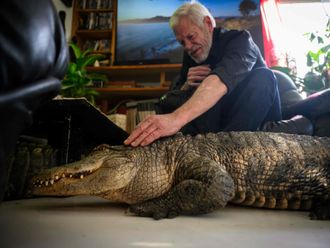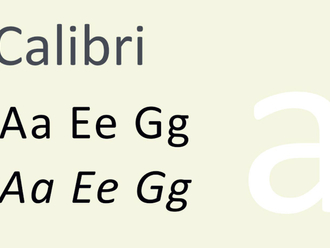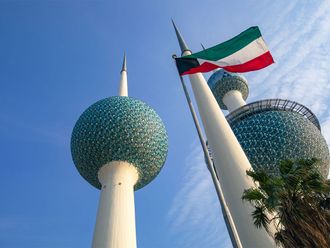London: British Prime Minister Boris Johnson and European Union negotiator Michel Barnier set out tough opening gambits on Monday in negotiating a future trade deal, making it clear that each side is willing to walk away without deal rather than compromise on key issues.
Just three days after Britain left the EU, the first country ever to do so, Johnson is digging in his heels about future relations. In a speech Monday to business leaders and international diplomats in London, Johnson says “we want a free-trade agreement” but not at any cost.
“The choice is emphatically not ‘deal or no-deal,”’ Johnson said, according to extracts of his speech. “The question is whether we agree a trading relationship with the EU comparable to Canada’s — or more like Australia’s.’”
Australian-style trade would mean a panoply of new tariffs and other barriers between the UK and the EU, its near neighbour and biggest trading partner.
Barnier was equally emphatic that the EU’s 27 remaining nations would not agree to any British trade deal just to avoid a costly, chaotic no-deal end to the transition period at the end of the year. He said the EU will link any access to its market for British products directly to the access that EU boats are given to UK waters.
“We are in favour of free trade but we are not going to be naive,” said Barnier. “If the request is to have broad access to a market of 450 European consumers, zero tariffs, zero quotas. That won’t happen for nothing, or in any kind of condition.”
Barnier rued the short transition of only 11 months to get a comprehensive deal and said the EU will continue to prepare for a no-deal. “If we cannot manage by the end of the year, there will be a widespread cliff,” Barnier said.
He said it was “in the interest of UK fishermen and European fishermen to have reciprocal access to our territorial waters and our markets.”
“That agreement on fisheries will be inextricably linked to the trade agreement,” he said.
In their divorce agreement, Britain and the EU agreed to strike an “ambitious, broad, deep and flexible partnership,” including a free trade deal and agreements for security and other areas. They gave themselves 11 months to do it. A post-Brexit “transition period,” in which relations stay essentially unchanged, runs until the end of 2020. For the rest of this year the UK will continue to follow EU rules, although it will no longer have a say in EU decision-making.
Britain says it wants a “Canada-style” free trade agreement with the EU covering both goods and services. But it is adamant it won’t agree to follow the EU’s entire rule book in return for unfettered trade, because it wants to be free to diverge in order to strike other new deals around the world.
The bloc insists there can be no trade deal unless Britain agrees to a “level playing field” and does not undercut EU regulations, especially in areas of environmental protections, worker rights and health and safety standards.
Johnson doubled down on Britain’s tough stance.
The prime minister chose to deliver his speech in the Painted Hall at the Old Royal Naval College in Greenwich on the River Thames, a spot steeped in Britain’s past military glories. The vast hall, covered in paintings glorifying British achievement, is where Adm. Horatio Nelson lay in state after his death at the Battle of Trafalgar against the navies of France and Spain in 1805.
“There is no need for a free-trade agreement to involve accepting EU rules on competition policy, subsidies, social protection, the environment, or anything similar, any more than the EU should be obliged to accept UK rules,” he said. “The UK will maintain the highest standards in these areas — better, in many respects, than those of the EU — without the compulsion of a treaty. And it is vital to stress this now.”
It’s a message aimed as much at a domestic audience as it is at the bloc, but EU leaders are unlikely to be impressed by what they’ll see as British intransigence and wishful thinking.
Formal trade talks won’t start until next month, once they have been approved by the remaining 27 EU nations.
EU leaders have repeatedly warned that the timetable is tight to strike any kind of deal. Free-trade agreements typically take years. The EU-Canada deal that the British government cites as a model took seven years to negotiate.
If there is no deal by the end of 2020, and the UK refuses to extend the negotiating period, Britain faces an abrupt, disruptive economic break from the bloc — with tariffs and other obstacles to trade imposed immediately between the UK and the EU.
That prospect alarms many businesses, especially in sectors such as the auto industry, which depend on the easy flow of parts across borders.












